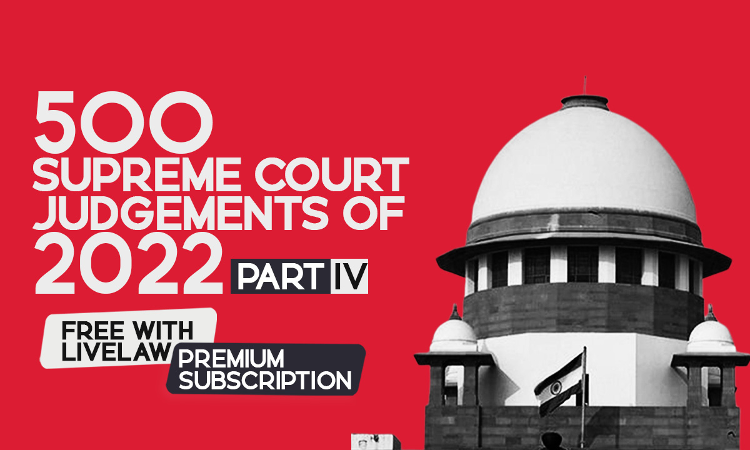500 Supreme Court Judgments of 2022 Part 4 (Citations 301 to 400)
LIVELAW NEWS NETWORK
4 July 2022 9:16 AM IST

Next Story
4 July 2022 9:16 AM IST
See Also 500 Supreme Court Judgments of 2022 [Citations 1 to 100]500 Supreme Court Judgments of 2022 (Citations 101 - 200)500 Supreme Court Judgments of 2022 (Citations 201 - 300) Protection of Children from Sexual Offences Act, 2012; Section 23 - Code of Criminal Procedure, 1973; Section 155(2) - Whether Section 155(2) Cr.P.C. will apply to the investigation of an offence...
